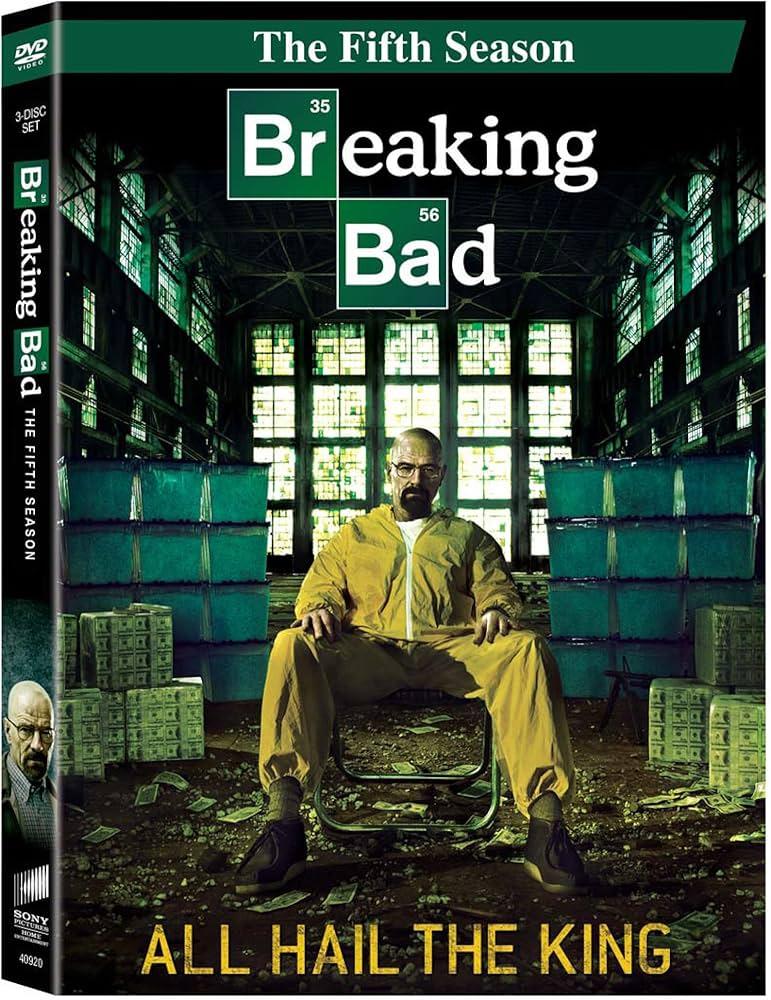In the realm of television, few series have sparked as much debate and admiration as “Breaking Bad.” Since its debut in 2008, the show has captivated audiences with its intricate storytelling, complex characters, and moral quandaries, leaving an indelible mark on popular culture. As the landscape of television continues to evolve, the question of whether “Breaking Bad” stands as the best TV show of all time remains a topic of fervent discussion among critics and fans alike. This article seeks to explore the elements that contribute to the show’s enduring acclaim, analyzing its narrative structure, character development, and cultural impact. By examining these factors, we aim to provide a balanced perspective on its legacy and its place in the pantheon of television greatness.
Cinematic Excellence and Storytelling Mastery
When examining the intricate tapestry of television history, Breaking Bad stands out as a paragon of cinematic brilliance and narrative prowess. The show, created by Vince Gilligan, masterfully intertwines themes of morality, power, and transformation through its compelling storytelling and meticulously crafted characters. Walter White, portrayed by Bryan Cranston, is not just a character but a profound exploration of the human psyche, making audiences question the very nature of good and evil. The show’s success can be attributed to several key elements:
- Character Development: The evolution of Walter White from a mild-mannered chemistry teacher to a notorious drug kingpin is executed with unparalleled depth and complexity.
- Visual Storytelling: Each scene is a visual feast, using cinematography to enhance the narrative, creating tension and emotion without uttering a single word.
- Plot Structure: The series is meticulously paced, with every episode contributing to an overarching narrative that keeps viewers perpetually on edge.
- Attention to Detail: From the chemistry references to the color symbolism, every detail is crafted with precision, inviting viewers to engage in deeper analysis.
These elements combine to create a show that not only entertains but also challenges viewers to engage with complex moral dilemmas and character arcs. Whether it holds the title of the best TV show of all time is subjective, yet its impact on the medium is undeniably profound.
Character Development and Moral Complexity
One of the most captivating aspects of Breaking Bad is its profound exploration of character arcs and the intricate layers of moral ambiguity. The transformation of Walter White from a mild-mannered chemistry teacher to a ruthless drug kingpin is a masterclass in character development. This evolution is not sudden but meticulously crafted, with each decision he makes serving as a stepping stone to his eventual descent into darkness. His journey challenges viewers to grapple with questions about morality, ethics, and the nature of good versus evil.
Key elements that contribute to this complexity include:
- Contrasting Characters: Characters like Jesse Pinkman and Hank Schrader provide a moral counterbalance to Walter, each with their own personal dilemmas and growth.
- Ambiguous Morality: The show consistently blurs the lines between right and wrong, prompting viewers to question their own moral judgments.
- Consequences and Redemption: Every action has a consequence, and the possibility of redemption remains a tantalizing yet elusive concept throughout the series.
This intricate web of moral complexity is a significant reason why many argue that Breaking Bad stands as one of the greatest TV shows ever created.

Cultural Impact and Legacy in Television History
The cultural impact of Breaking Bad is undeniable, as it redefined the potential of television as a medium for storytelling. At its core, the series challenged traditional narratives, offering a morally complex protagonist in Walter White. This character’s transformation from a mild-mannered chemistry teacher to a ruthless drug lord captivated audiences worldwide, prompting discussions about ethics, identity, and the consequences of ambition. The show’s meticulous attention to detail and character development has set a benchmark for quality in television, influencing countless series that followed.
- Innovative Storytelling: By embracing a serialized narrative, the show pushed the boundaries of episodic television, encouraging viewers to engage with long-term story arcs.
- Character Complexity: The nuanced portrayals by actors such as Bryan Cranston and Aaron Paul have become a template for character-driven drama.
- Visual and Thematic Depth: The use of symbolism and cinematography in Breaking Bad contributed to its status as a visual masterpiece, making each episode a topic of analysis and discussion.
Through its innovative storytelling and unforgettable characters, Breaking Bad has left an indelible mark on television history, ensuring its place in the conversation about the greatest TV shows of all time.

Comparative Analysis with Other Iconic TV Shows
- The Sopranos: Often hailed as the pioneer of the modern golden age of television, The Sopranos set the stage for character-driven narratives with its complex portrayal of mob life. While Breaking Bad shares this deep dive into morally ambiguous characters, its narrative arc is more tightly woven, with a definitive beginning and end that some argue provides a more satisfying resolution.
- The Wire: Celebrated for its social commentary and realistic depiction of urban life, The Wire offers a multi-faceted view of societal issues through its ensemble cast. In contrast, Breaking Bad focuses primarily on personal transformation and the consequences of one man’s choices, offering a more personal yet equally compelling exploration of human nature.
- Game of Thrones: Known for its epic scale and complex political intrigue, Game of Thrones captivated audiences with its vast world-building. While Breaking Bad lacks the fantasy elements, it matches the intensity through meticulous plotting and character development, keeping viewers on edge with its unpredictable twists.
When evaluating these shows, it’s clear that each brings unique strengths to the table. Breaking Bad distinguishes itself with its relentless focus on the transformation of Walter White, crafting a narrative that is as tight as it is thrilling. Its ability to maintain high-stakes drama while providing deep character insight sets it apart, making it a formidable contender in the debate for the greatest TV show of all time.
